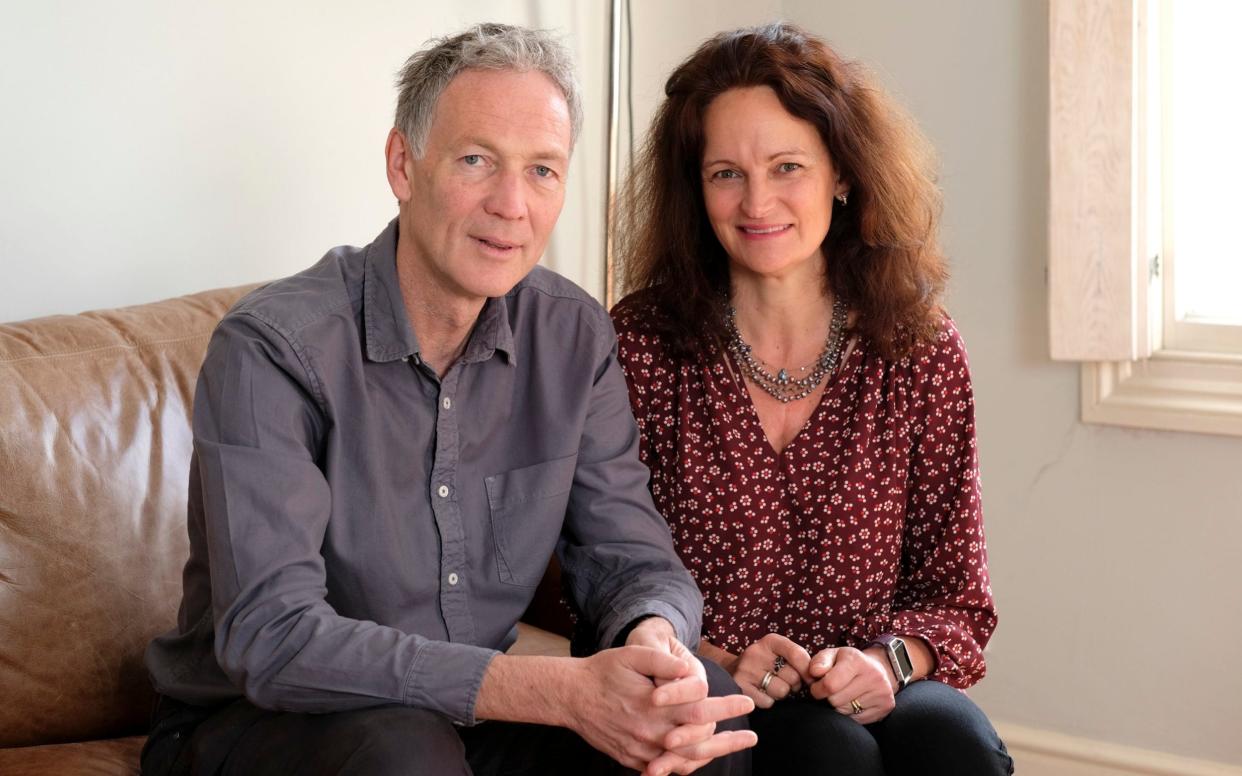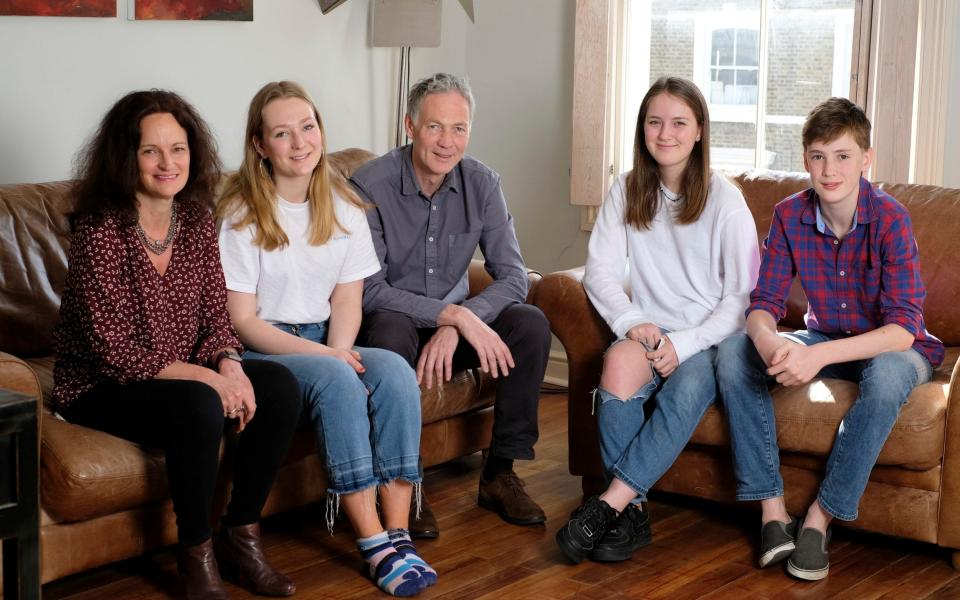Meet the City boy who quit a lucrative job to write a novel - much to the alarm of his wife

My wife Emily once said, “Everyone says they want to leave the City and write a novel... but I married the idiot who did.” These words, overheard at a party, contained two truths: first, everyone believes they have a novel in them; second, it is not always sensible to bet your entire future on the success of the written word.
The belief that we all have a book in us, is often offset by another, equally hackneyed, saying: ‘Everyone should throw their first novel away’. The problem for me was that, by the time I resigned as an equity salesman, I had already thrown away my first novel. Trial and error was no longer an option.
Why did I want to be an author? Honestly, I am not sure when or how the desire crystallised. Possibly, I didn’t feel qualified to do anything else. Yet I was not a typical writer - someone who had spent my childhood reading or making up stories. Rather, I had kicked, hit and bowled balls, almost to the exclusion of all else. Yet, for some reason, the urge to write gripped me. And having flounced out of my City career in 2000, proclaiming, ‘I’m going to be a novelist’, I was left with no choice but to follow through.
My own wife’s face, when I told her my plan, spoke of more than mere concern over how much time this would take
There followed a peripatetic period, during which we lived in west Dorset and Spain before moving to Bristol, our savings dwindling as the family expanded. I wrote scraps of journalism (and obituaries for The Telegraph), gained and lost a couple of literary agents. But there was little evidence I could make a living as a novelist.
For three years, I had written no fiction. I felt defeated by my failure. But I was also conscious that I owed it to my family to generate a serviceable income.
So, shortly after Emily’s bleak assessment at that party, I bowed to the inevitable and rang an old friend in the Square Mile who ran an independent broking house. He had once said, “If you ever want a freelance job writing rubbish, I’ll give you one.”
With my client list long since dispersed, and no realistic prospect of being a salesman again, it seemed ‘rubbish’ was the summit of my ambition. I took a role at brokers Redburn, writing, editing, and compiling its magazine. The dream of a novel appeared over.

But then, in 2010, I felt the call again. The storyline for a psychological thriller had started to form in my mind and I was conscious that I had, more by luck than judgement, stumbled across an unusual angle. The problem was time. I now had a job based in London, while still living 120 miles away in Bristol. Emily had returned to teaching full-time, and my three children were a demanding twelve, ten and eight.
Having allowed the plot to thicken, I begged and was granted two weeks’ holiday, on my own, weekends thrown in. I took one in October 2010 and another in March 2011. Given that I already stayed in London three days a week, this was a generous offer.
I wrote four thousand words a day for nine days solid, twice, and whether inspiration struck or not. Over the next year, I edited the text whenever I could - in the evening, on holiday, or during my long commute.
Throughout 2012, I sent sample chapters and synopses to agents. There was a chilly silence. The advice - when it came, accompanied by a rejection letter - was that the plot was promising, but my main character was not.
I finished the second draft in mid-2014 and sent it out, again. This, I knew, was my last chance
The problem was this: the main man wasn’t the main man at all, his wife was. Gradually it dawned on me that the only way to address the problem was to re-write the novel in its entirety from her point of view.
My own wife’s face, when I told her my plan, spoke of more than mere concern over how much time this would take.
Fortunately, by the time I had summoned the energy to begin, my daughters had started to lie-in at weekends and my son owned a Playstation. I saw an opportunity and added Saturday and Sunday mornings to my writing schedule, working in a local café.
This time, I made three fundamental changes: Alice became the narrator; her career changed from GP to portrait painter; and there was a new ending. I finished the second draft in mid-2014 and sent it out, again, to agents and publishers. This, I knew, was my last chance.
In March 2015, my luck turned. Susanna Wadeson, an editor at Transworld, lifted my manuscript off the pile and “saw something”.
She suggested changes and slowly, with her input, my unstructured and pretentious ramblings were whittled down into a page-turning narrative with a bone-juddering ending.
It was another year of work, each re-write offering an increasing sense of hope in tandem with the fear that actual publication would prove to be like Jay Gatsby’s green light: ‘the orgastic future that year by year recedes before us’.
At last, I received the call for which I had been waiting almost twenty years. Transworld wanted to buy What Alice Knew. I wanted to howl like a wolf, but was conscious it might have unsettled Redburn’s trading floor.
More than a validation of my time and effort, it seemed confirmation of my suspicion that the difference between a published and unpublished novel is often sheer luck. The volume of manuscripts that flood into agencies and publishers every single week, dictates that.
So my advice to anyone trying to write a book, while raising a family and holding down a full-time job, is this: keep reading, keep writing, just keep believing.
What Alice Knew by Archie Cotterell is published by Black Swan. To order your copy for £7.99 plus p&p call 0844 871 1514 or visit books.telegraph.co.uk.
Five novelists who might never have been...
Raymond Chandler
In 1932, aged 44, Chandler lost his job as an oil company executive during the Great Depression and apparently said to himself: “well, better become a detective fiction writer.” His first story was published a year later and his most famous novel, The Big Sleep, in 1939.
James Joyce
Twenty years passed between Joyce’s 1922 book Ulysses and Finnegan's Wake, largely due to the fact Joyce was legally blind and suffered with eye pain his entire life. His final novel took 17 years to complete, and the Irishman often wrote while squinting, using crayons to make his words as bold as possible.
Michael Punke
The former Deputy United States Trade Representative wrote his first book in the late Nineties, waking at five in the morning to write for three hours before doing his day job. It took almost four years to finish and he caught pneumonia four times in the process. In 2002, The Revenant was published, and in 2015, it became an Oscar-winning film starring Leonardo DiCaprio.
Jean-Dominique Bauby
The former editor of French Elle suffered a massive stroke that left him with locked-in syndrome. Yet with the use of technology, he managed to write memoir The Diving Bell and the Butterfly, published in 1997, solely by blinking.
George Eliot
In the 19th century, George Eliot was a popular male writer. Yet, ‘he’ was really a she - a young woman named Mary Ann Evans, who used a nom de plume to ensure her works weren’t dismissed as romantic nonsense.


